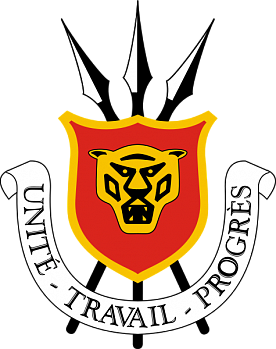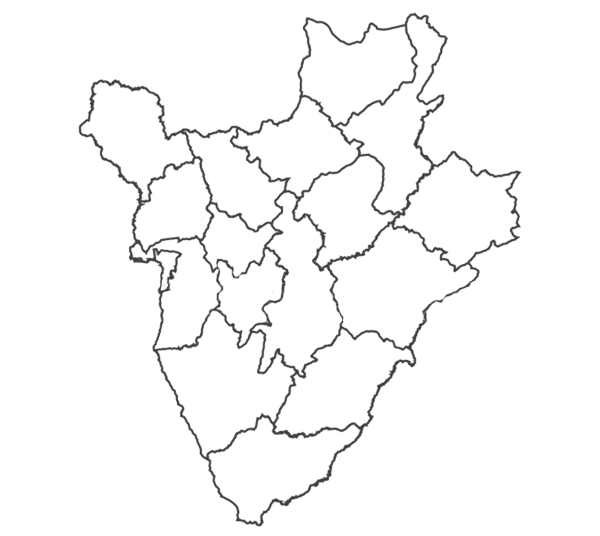Burundi Embassy in Washington DC
- +1 (202) 342-2574
- 2233 Wisconsin Ave NW #408, Washington, DC 20007
THE COUNTRY

National Anthem
GITEGA
CAPITAL
Burudian franc
Currency
Time Zone
UTC +02:00
National Anthem
Burundi Bwacu
Independence Day
July 1st 1962
Area
27,834 km² (10,747 Sq mi)
Country Dialing Code
+257
Population
M13.69
PRECEDENT
S.E. Evariste Ndayishimiye
Major General Evariste Ndayishimiye known as N.Eva has been the President of the Republic of Burundi since June 18, 2020. Burundian politician and Secretary General of the CNDD-FDD party in power in Burundi from 2015 until 2020, he was born in 1968 in Musama, in Kabanga Zone, Giheta Commune of Gitega Province (Central Burundi).

GEOGRAPHY
Burundi is a country straddling Central and East Africa. It is surrounded by the United Republic of Tanzania to the east and south, the Democratic Republic of Congo to the west and Rwanda to the north. It is landlocked but has a large shore on Lake Tanganyika. Since February 4, 2019, Gitega has been designated as the political capital, while Bujumbura has become the economic capital.
With a population of around 12 million spread over an area of 27,834 km², Burundi is one of the most densely populated countries in Africa.
However, despite its small size and isolation, the country has been able to take advantage of this intermediate situation between Central and East Africa, between English-speaking and French-speaking Africa, in terms of economic, human or cultural exchanges as well as in the geopolitical balance.

Burundi, Source of the Nile

If the Nile, this longest river in Africa with its 6671 km, has been known for a long time, its source has remained enigmatic. Until the 15th century, under the influence of Ptolemy, Greek geographer of the 2nd century, everyone thought that this source was in large snowy mountains close to the equator and that the snow while melting fed the lakes located more in the north, from which came two streams whose union formed the Nile.
It was not until the 19th century that the English embarked on difficult expeditions to unravel the mystery of the sources of the Nile. The Royal Geographical Society had funded several expeditions from Zanzibar. In 1858, after 6 months of exploration, Richard Burton and John Speke discovered Lake Tanganyika. Speke later discovered another even larger lake, which he named Lake Victoria in honor of the Queen of England, and believed he had found the source of the Nile.
In 1860 Samuel Baker and his wife Florence discovered a river connecting Lake Victoria to Lake Albert and considered it to be the source of the Nile. Meanwhile, missionary and explorer David Livingstone claimed that Lake Tanganyika was one of the sources of the Nile. It was in 1934 that the explorer Burckhart Waldecker discovered, in Burundi, in the commune of Rutovu (Bururi province), the southernmost source.
It is a trickle of water coming out of the northern flank of Mount Gikizi in the commune of Rutovu in Burundi. It continues its course by the Gasenyi, Kigira rivers, tributaries of the Ruvyironza. The latter in turn flows into the Ruvubu whose waters join the Nyabarongo to form the Kagera, the main tributary of Lake Victoria. The waters of Lake Victoria exit through Jinja and constitute the White Nile. Waters from Ethiopia arrive in Karthoum via the Blue Nile. From this city, the Nile is made up of a single stream and crosses Sudan and Egypt before emptying into the Mediterranean Sea.
Since 1999, there has been an intergovernmental institution called the Nile Basin Initiative created to serve as a forum for consultation and coordination between basin states for the sustainable management and development of shared waters and related resources advantageous for the 9 states of Burundi, the Democratic Republic of Congo, Egypt, Ethiopia, Kenya, Rwanda, Sudan, Tanzania and Uganda. In 2000, these countries adopted a Common Vision document with the objective of “achieving sustainable socio-economic development through equitable use and the benefit of all of the common resources of the waters of the Nile basin”. Common Vision Projects (PVC) are made up of activities aimed at promoting trust and cooperation and creating an environment that facilitates investment.
ECONOMY
Burundi’s economy is essentially a rural economy based on agriculture and livestock.
The agricultural sector employs 90% of the population and thus represents the big employer in the Burundian economy. However, it is the tertiary sector that contributes more to GDP. In its role as a hub, Bujumbura, the capital, stimulates the growth of large and small businesses.


FOREIGN POLICY
As a member of the United Nations and the African Union, Burundi naturally adheres to the goals and founding principles of both of these Organizations as set out in their respective Charters. In addition to protecting its sovereignty, Burundi’s action is always guided by the concern for international peace and security, the promotion of human rights, friendly relations and international cooperation with a view to sustainable and equitable development.

